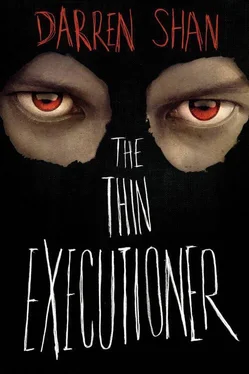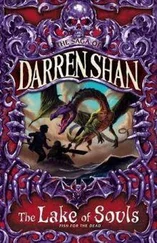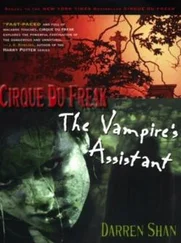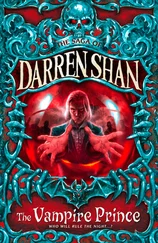“It’s hard,” Tel Hesani agreed, picking a thumb-sized insect out of his beard and flicking it away. “Masters Bush and Blair had the right idea. Only a madman travels by foot through here.”
“How much farther is it?” Jebel asked, but Tel Hesani only shrugged. “I wish we’d gone by Abu Safafaha. I’d rather have my head cut off by a savage than die a slow death from mosquito bites.”
Tel Hesani chuckled. “Right now I agree with you. But we’ll think differently once we clear this infernal swamp. Our suffering might seem eternal, but it isn’t.”
A few days later, Jebel spotted his first alligator. He had seen alligators in Wadi, but they’d been captured and caged. This was his first time seeing one in the wild.
“Look!” he gasped. They seemed much bigger than those he’d seen before.
“I’ve been expecting them,” Tel Hesani said, shading his eyes from the sun and studying the land ahead. “I thought we’d run into them sooner. Hunters must have driven them north. They used to be common all the way down to Shihat.”
“What are we going to do?” Jebel asked.
“Skirt around them,” Tel Hesani said. “We could avoid them completely if we cut due west, but that would mean fighting our way through swamp even worse than this, filled with mosquitoes twice the size.”
“But aren’t alligators dangerous?” Jebel asked.
“They usually keep to the riverbanks,” said Tel Hesani.
Jebel was dubious and insisted on marching behind Tel Hesani from then on. He would rather lose his slave to quicksand than be eaten by a hungry alligator!
The alligators popped up more frequently the farther they progressed, and snakes too. The snakes were actually more dangerous. You could spot an alligator if you were alert, but snakes hid in the reeds and slithered across the bottom of the swamp. You could find yourself in a knot of Makhras’s most poisonous reptiles and not know it until they started biting.
Tel Hesani had bought trousers for Jebel in Abu Aineh and made him wear them now. He’d also purchased thick boots for both of them, which covered their legs up to their knees, protecting the areas most prone to attacks.
Jebel hated the trousers and boots — he’d worn a tunic and sandals all his life, which were much more comfortable. But when he studied his boots at the end of the first day and found gouges where snakes had struck unknown to him, he stopped complaining and even slept with them on.
Tel Hesani told Jebel the names of many of the snakes. He also told the boy about their habits and life span. Jebel wasn’t particularly interested, but it helped the time pass a bit quicker, so he let Tel Hesani babble on and listened with one ear while keeping both eyes on the ground ahead of him.
Several days after sighting their first alligator, as Tel Hesani was telling him about a giant snake that could swallow a person whole, they chanced upon a small village nestled in a clump of trees and reeds. They’d seen a few settlements before, in the distance, surrounded by large fences. The questers had avoided them, since it was common knowledge that people crazy enough to live in these swamps were hostile to strangers and routinely speared passersby.
But this was different. The village stood in the open, apparently unprotected. Tel Hesani assumed there must be a pit around the perimeter, filled with tinder that could be quickly ignited in case of an attack. But he saw no such pit as he studied the village, nor nets, nor traps. It looked like it was open to the elements, at the mercy of the cold-blooded reptiles of the swamp.
The huts were small, with reeds for roofs, and most were built around the stunted trees that were common here. The doorways were unbarred. Children played and chased each other. Several women were baking in a clearing at the center. Others swept out huts or sat talking. They all wore long skirts and no blouses. They had short hair, no longer than a man’s. Many had what looked like scarves wrapped around their necks, but when Jebel saw one of the “scarves” move, he realized they were actually live snakes.
Jebel nudged Tel Hesani and pointed at the snakes, but the slave had already seen them. He was more interested in the men. One was working on the roof of a hut, but the others were gathered around a fire at the end of the village. They were sitting on what seemed to be logs, but Tel Hesani had spent enough time in the swamp to know the difference between a log and a reptile. The men were in fact sitting on alligators. As he watched, he saw some of them pick bits of food from between the alligators’ teeth, polish their scales, and check their claws and limbs.
“I don’t like this,” Jebel whispered. “Let’s move on.”
“Wait,” Tel Hesani said. “These people are strange. I want to study them.”
“Well, I don’t,” Jebel growled. “If they see us, we’re dead. Let’s back off nice and slowly before…” He drew to a halt, eyes bulging out of their swollen sockets. A huge snake was gliding towards them. It looked like it could swallow both man and boy at the same time. Jebel went into a blind panic and fell backwards with a scream. Tel Hesani also lost control and retreated hastily.
The snake slid closer. Jebel fumbled at his scabbard for his sword, but his fingers missed the hilt. Tel Hesani reached for a pair of knives, knowing he’d stand a better chance fighting at close quarters when he was within stabbing range of the snake’s eyes. But before either had a chance to strike, a girl darted ahead of them and threw herself on the snake’s head. Jebel turned and ran, but Tel Hesani lunged after the girl, his fatherly instincts kicking in. Then he felt arms encircle him.
Tel Hesani struggled, but the man holding him muttered in his ear, “Be with peace. We do not harm you.”
The Um Kheshabah paused. The snake was raising its head so that the girl could crawl beneath and tickle its lower jaw. Tel Hesani relaxed, and the man holding him let go. When Tel Hesani turned, he saw that the man was smiling. “We do not harm you,” he said again, then pointed at Jebel, who was still running. “He afraid,” the man laughed.
“He’s only a boy,” Tel Hesani said, returning the man’s smile. He put his fingers to his lips and whistled sharply. Jebel didn’t hear, so Tel Hesani whistled again, then a third time. The final whistle penetrated, and Jebel glanced over his shoulder. When he saw Tel Hesani standing with the villager, and the child playing with the snake, he made a face and stomped back to the slave’s side.
As Jebel reached Tel Hesani, he put his hands together and bowed to the man from the village, then at those who’d followed him — most of the villagers now stood close by. “Greetings,” Jebel said stiffly.
The man nodded. “Peace,” he said, then pointed at the snake. “You need not be afraid. She would not harm you.”
Jebel forced a shaky smile, then told the villager their names.
“I Moharrag,” the man replied, tapping his throat. “I welcome you. No need to fear here. Safe.” Then he led them into the village, clapping at the women and barking an order in his own language, telling them to prepare a meal for their guests and to keep the larger snakes and alligators away from the young one — he looked like a chick that had hatched to find a cat standing over it!
The village was called Khathib. The um Khathib didn’t record time as other tribes did, so they couldn’t say how long the village had been here, but they told Jebel and Tel Hesani that it had been going strong for eight generations. They didn’t have much to do with outsiders but had forged links with some river traders who’d docked close to the village by chance. It was from the traders that Moharrag and a few others had picked up the language of the civilized countries. Moharrag couldn’t communicate fluently, but they could make sense of most of what he said.
Читать дальше







